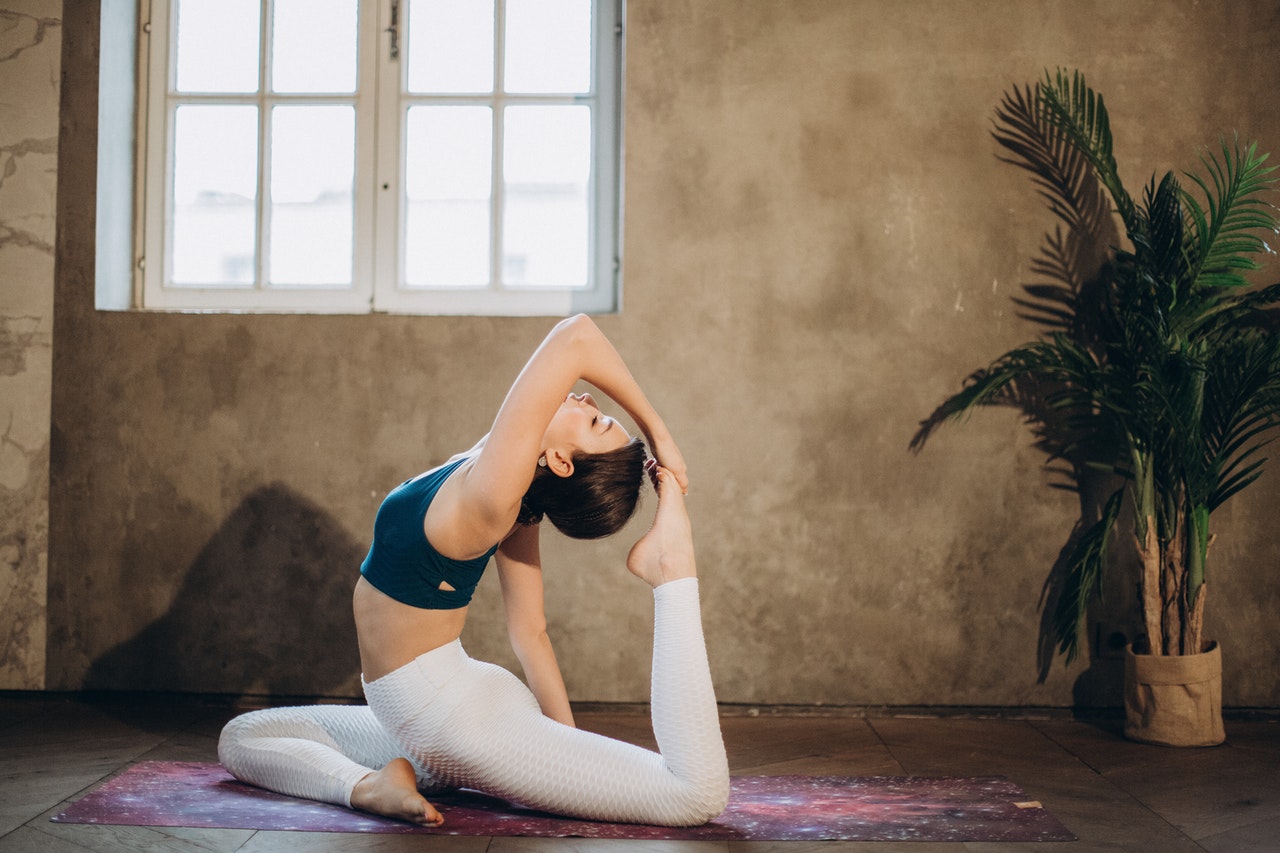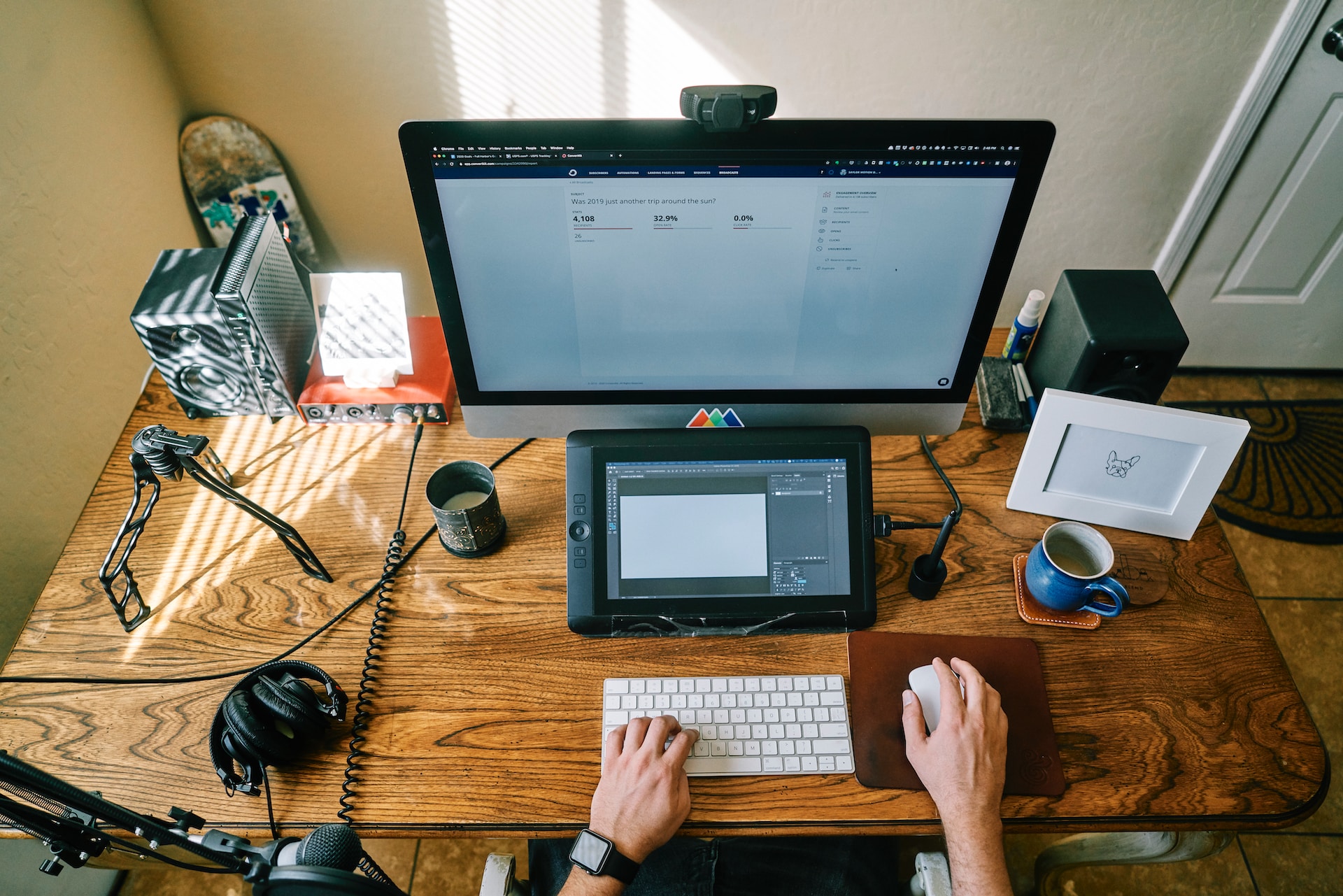Navigating through daily life during the pandemic can at times feel like trying to steer a rudderless lifeboat in the middle of the ocean. Feelings of isolation, depression, fear, and worry, has left many feeling out of control.
During this time, amidst all the distractions and chaos, it’s important that we remember to practice self-care. If you are a parent or single parent trying to juggle work and pandemic homeschooling, devoting some time to your own well-being is critical.
Quarantine self-care doesn’t have to take up hours a day, but try to carve a bit of time every day, even if it’s just half an hour in the morning for a cup of tea, a soak in the tub, a nice walk, or a video chat with a friend. This helps prevent burnout and helps you recharge a bit, both mentally and physically. If you’re caring for others, you can’t help them if you’re drained and feeling overwhelmed. Self-care is caring for those you love, too; especially for parents with special needs children.
Self-care is important not only for good physical health but for mental and emotional health, too. In a year of intense news noise all around us, worries about catching the COVID virus, and changes in our routines and income, it’s easy to allow our energy to get sucked into a negative hole, drowning out the positive aspects of life before we realize it.
If you find you’re overwhelmed and stressed during this lengthy socially distanced quarantine, you’re not alone. But there are things that may boost your emotional and physical health. We have some self-care ideas on how you can not only keep your head above water in these difficult times but how to swim to shore.
Mental Health During a Pandemic
These are extraordinary times. What was once ordinary no longer is. Maintaining our mental health during this pandemic is important. If left neglected, mental stress can even manifest in physical symptoms. You may notice an uptick in symptoms like headaches, fatigue, insomnia, rises in blood pressure, and muscle tension. It can interfere with your ability to empathize with others, which can impact things like being a parent or caring for another family member.
Maintaining a practice of caring for oneself during this upheaval – and beyond – is necessary and not a selfish act, as some people may think. If your neglected nervous system is exhausted, you may lose sleep and feel tired and cranky the following day. This can become a routine that ends up impacting your mental and physical health.
While it can be overwhelming, try to invest at least a few minutes of loving care for yourself each day. Look for ways that can easily slip into your daily routine so you’re more likely to maintain an ongoing practice of self-care, even after the pandemic is history.
Physical Health During the Pandemic
Maintaining or improving your physical health during the pandemic is important as well. Drinking alcohol can lead to health complications, especially when coupled with a less active lifestyle. Instead of having a cocktail or beer to unwind, try taking a bike ride, a socially distanced outdoor yoga class, or a walk or hike. If you are quarantining with your family, you can involve everyone in physical exercise.
Staying in good physical health through a daily self-care routine can increase your mood, your outlook, and your ability to handle stress. Be sure to take some time to love yourself during the quarantine.
Tips for Parents
If you’re a parent or a new parent, you’re acutely familiar with putting your children’s needs before yours. No wonder you’re feeling drained. It’s easy to put aside your needs in favor of feeding a toddler or staying on top of the math homework for your third-grader. Eventually, neglecting yourself will catch up in the form of fatigue and burnout.
You may feel guilty taking the effort to take care of yourself, but this is critical to offset the stress of the pandemic. You can’t hide behind a happy face forever.
If you have younger kids, you may be entrenched in their worlds and habitually put your needs on the back burner. This time period is stressful for children, but you have the added responsibility of taking care of their needs. Be kind to yourself as you deal with in-house, stir-crazy children navigating school at home or remembering face masks as they leave for school every morning.
Try to find some time during the day to reconnect with yourself. For those with smaller children, this might be during nap time or after their bedtime. This will help you be a better parent. You can also practice positive parenting techniques to help you get through these difficult times.
Acknowledge your Feelings
Stress and anxiety don’t go away just because you’re too busy to deal with it. Acknowledge your feelings. You’re in good company as a parent, feeling overwhelmed with raising children during a pandemic and keeping your family safe from the virus. You don’t have your usual in-person support network of friends, family, and babysitters. Many parents are trying to work from home or at the office while their children are trying to learn from home. It’s hard stuff. Acknowledge that.
Your feelings are genuine. If you find your frustration level spilling out onto your children, identify those times that your children are proverbially “pushing your buttons” and have a plan for how you will handle that. Sometimes, just walking away for five minutes works well.
Find the Right Amount of Sleep
We too often don’t respect sleep enough. You’ve no doubt uttered, or heard someone say, “I’ll get all the sleep I need when I’m dead.” Well, good-quality sleep is critical not only for our physical, mental and emotional health, but it also helps us handle stress and is important for our immune system.
Many people have noticed sleep disruptions during the era of Covid-19, whether from changes in schedule, worries, depression, lack of sunlight from staying indoors, too much screen time. Frontline healthcare heroes face additional emotional and physical stress and lack of sleep from caring for COVID patients.
Scheduling more sleep (7 to 8 hours a night) can be restorative and result in a boost of energy and a better mood the next day. Aim for going to bed half an hour earlier at night, and turn off all electronics an hour before bed. Or, sneak in time for a half-hour midday nap. Naps are highly underrated for their health benefits.
Practice Healthy Eating and Exercise Habits
If you’re not healthy, this can be an open door to sickness and can affect your emotional and mental health. If you’re loading up on high-fat, high-carb, high-sugar comfort foods, that’s not the fuel your body needs to run optimally.
Try to resist the call of comfort foods and instead cook healthy, unprocessed meals. Instead of cookies, try a handful of blueberries. Substitute water for soda.
Try to get your body moving every day, even if it’s just for a short walk. Take the opportunity to walk your dog more often. Do yard work – this has the added bonus of getting you outside in the sunshine, where your body can use the sunlight to replenish your supply of Vitamin D. Speaking of Vitamins, you might want to look into supplementing with things like Vitamin D, C, and Zinc for example.
The more you engage in these kinds of healthy practices, the greater the chance they will become habits that will last long beyond the pandemic.
Give Yourself a Break and Breathe
Go easy on yourself and don’t expect perfection. Remember, we’re in a pandemic. These are not normal times. Don’t compare what you accomplished before the pandemic to what you’re accomplishing now. Sometimes, a good pandemic day consists of meeting your kids’ basic needs. Do they have clean clothes, food, water? Make sure they get some fresh air, and you’re good.
If you’re having a rough day, take a breathing break. Block out 10 minutes and deeply breathe to increase the healthy oxygen levels in your muscles and your brain. Then, return to the chaos of your day feeling more refreshed and focused.
“Date Night” at Home
We tend to neglect our romantic relationships in the chaos of the pandemic. Try to plan a date night at home with your significant other. Order takeout from a restaurant and pretend you’re actually at that restaurant. Take a long walk together in a park. Take the time to reconnect and don’t be afraid to ask for help from your partner when you need it.
Self-love with a Spa Day at Home
Why not pamper yourself at home? Slip-on a comfy robe and slippers, light some calming-scented candles like lavender, lemon, ylang-ylang, or rosemary, pour a long bath, and forget about your troubles for a bit. Click here for some more ideas on how to create a restful, rejuvenating at-home spa day. You deserve this!
For Homeschooling Parents
Millions of parents have been thrown into the homeschooling arena and many have discovered just how challenging that is.
As you’re navigating online course assignments, technology glitches, deadlines, and cranky students, try to take a few minutes to remind yourself of the positives in your life. Find joy in little things. No homeschooling day will be perfect, so accept that and go on.
As a homeschooling parent, make sure your needs are met, too. If you’re not feeling good or positive, it’s more difficult to motivate and communicate with your child or children when they need an assignment explained or just moral support during their school day.
Look for moments that you can step away and listen to a few moments of music or chat with friends.
Take a Bubble Bath
Temporarily escape your troubles by soaking in a nice, long bath. Pile up the bubbles, light a few safe candles, turn on some mood music, and just relax. Put a sign on the bathroom door with a clear order to not disturb you unless the house is burning down or someone is openly bleeding and needs an ambulance.
Take a Walk
One good way to recharge and rebalance is to take a walk or a bike ride. Getting outside in the fresh air and sunshine can bring a jolt of positivity into a day steeped in details and frustrations, boosting your mood and sense of well-being.
As you walk, start noticing everything around you, including your breathing and the sound of each step. Listen for every sound, and notice the leaves and the smell in the air. Can you feel the breeze on your skin? Focusing on the now will help give your mind a break as you set aside all those “what-if” thoughts.
Video Game Breaks
A regular schedule is good, but every hour of every day doesn’t have to be filled. If you’re having a bad day or if one of your kids is having a challenging time, there’s nothing wrong with letting your kids play video games or watch a movie for a bit while you take a chill break. Sometimes, just half an hour of downtime for both of you is enough to make a difference.
Fitness and Working Out
Treating your body well is a big part of self-care. While pandemic-era life is brimming with chaos and closed gyms, don’t shame yourself into starting a significant workout routine. Start with manageable changes that have a greater chance of leading to long term healthy practices.
You may miss your workout buddy, your local gym, and personal trainer, or your local Zumba class. However, staying active and moving can benefit you both physically and mentally, along with improving your sleep. Exercise can also help boost your immune system, ease stress, anxiety, and depression, and help with high blood pressure and diabetes. As you exercise, your body releases endorphins, often called the “feel-good hormones” that help improve your spirits.
Search online for at-home exercise routines you can easily work into your routine. Start slow and build up. You don’t need a lot of equipment to find a good workout. You’ll be surprised what you can accomplish with some clear floor space and a chair.
Always check with your physician before starting any physical fitness routine if you have any health conditions. Add workout sessions to your calendar to keep on track. Click here for more great tips on starting and keeping a good exercise routine during Covid-19.
Meditation, Breathing, and Yoga
Meditation is a fantastic self-care activity for everyone. Some people don’t take meditation seriously, but in a nutshell, it’s just deep, relaxing abdominal breathing – and becoming aware of those breaths.
There are many meditation apps available (including Calm and Headspace) and, depending on your lifestyle, you can choose short or longer sessions. Meditate when you want: in the morning, during the day, or at bedtime.
Yoga and stretching are also beneficial for self-care activities. You can find yoga apps or online yoga classes. Not only does yoga and stretching help clear your mind, but it also helps keep your muscles supple and can help ease tension in your neck, back, and shoulders.
Consider finding family-friendly apps everyone can participate in or set kids up with earphones and their own meditation or yoga program while you do yours.
For Single Parents
Single parents often don’t get a break from parenting, so there may be less opportunity to take care of yourself. But, it’s just as crucial that you take that time and find opportunities for self-love. It may be as simple as getting up 20 minutes early to slowly sip that cup of coffee and stare out the window instead of gulping java while cooking breakfast for everyone.
Seek support from other single parents who are going through similar situations, and ask for advice on how they handle things. You may be surprised to learn that most single parents are fumbling their way through this pandemic just like you are. You’ve got this.
“Safe Word”
This pandemic has been stressful for children whose routines have been disrupted and who miss hanging with their friends. Kids may feel overwhelmed at times and need a break, too. Think about coming up with a “safe word” for the family. When spoken, this word signals that everyone else gives that person space, leaving them alone for an agreed-upon time. Make the safe word something that everyone can remember and put the word on the refrigerator in case family members forget it. Parents can use the word, too, for a much-needed break.
Video Chat with Family or Friends
There are ways to feel less isolated. One of the best ways to lift your mood is to have video chats with family or friends. Lots of messaging apps, including Facebook, WhatsApp, Skype, and Facetime, let you make video calls. Next time you take a walk, grab your phone, and have a video chat with one of your friends as you exercise. It’s almost like having your friend beside you.
Baking
Try cooking and baking as a way to boost your mood and reduce stress. The in-the-moment repetitive action of chopping vegetables, kneading bread, or cutting cookie shapes can be a form of therapy, clearing your mind as it lifts your spirits.
Pandemic baking helps you focus on something immediate, other than what’s worrying you. You’re connected with your body and its actions instead of with your intellect. The results can be delicious, too. Find some great pandemic recipes sure to ease your mind and please your palate.
Say a Daily Mantra
Giving yourself a pep talk, or saying a positive daily mantra, can help you focus on what’s important and move forward through the day. It could be something simple, such as repeating, “I am a good parent and I’m doing the best I can right now. I’m not alone, and I will reach out when I need help.”
You could also come up with a family mantra, collaborating on the wording. Examples could be, “I will give family members space when they need it” or “I will do my best.”
Love Yourself
Providing self-care isn’t a selfish move – it’s the opposite. By prioritizing both your physical and mental health, you’ll find yourself better able to cope with all of the changes and frustrations this pandemic has caused, and you’ll be a better parent, friend, caretaker, and partner.




